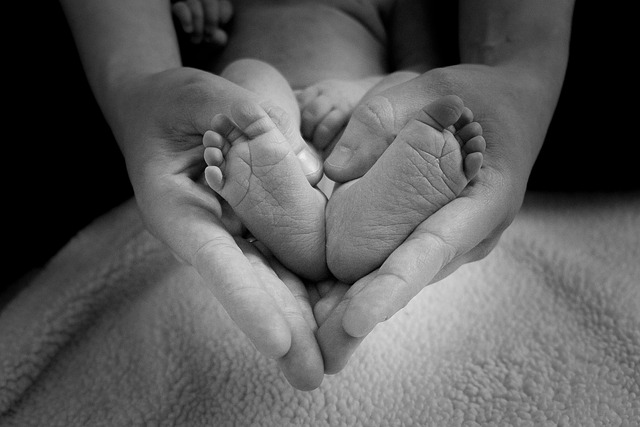Emotional Overflow: Why Do I Cry Over every Little Thing?

Have you ever found tears welling up over seemingly insignificant matters, leaving you with this question: Why do I Cry over every Little Thing? It is a natural and valid aspect of the human experience, reflecting the complexity and depth of our emotional lives.
This enigmatic aspect of our emotional landscape is a puzzle worth exploring. From spilled milk to forgotten keys, the triggers for Cry over Every Little Thing may appear trivial, yet their impact can be profound.
In this journey of self-discovery, we delve into the depths of our psyche to unravel the mysteries behind our tears. What lies beneath the surface of these seemingly inconsequential moments? What hidden truths do they reveal about our innermost selves?
Join us as we embark on a quest to decipher the complexities of Cry over Every Little Thing, unlocking insights that may transform the way we perceive and navigate our emotional world.
Prepare to delve deep into the realms of psychology, biology, and beyond, as we seek to unravel the intricate web of emotions that shape our human experience.
Each individual’s experience with emotional overflow is unique, and shaped by a myriad of factors including upbringing, personality traits, and life experiences. Personal reflection allows individuals to gain insight into their emotional responses, providing an opportunity for self-discovery and growth.
What causes people to cry more frequently?
-
Depression
Depression is a mood disorder in which you have a persistent feeling of sadness that lasts for more than a few weeks. Activities that you once found enjoyable may no longer arouse your interest and may lead to Cry over Every Little Thing. Symptoms of depression may include: Sad and gloomy, Feelings of despair or worthlessness, Low energy, and Difficulty concentrating.
Your crying may be related to depression if you:
- Crying for trivial things or it’s hard to determine why you are crying
- Crying much more than usual
- Have difficulty stopping your tears
If your depression is milder, excessive crying is more likely to occur. People with severe depression often have difficulty crying or expressing other emotions.
-
Anxiety, anxiety
We all have times of tension and anxiety. However, for anxiety disorders, you will experience anxiety and tension more frequently, maybe even every day. Symptoms usually include: Impatience or irritability, Overly worried, Muscle tension, fatigue, Difficulty concentrating or concentrating, Difficulty sleeping
-
Pseudobulbar affect
Sudden Cry over Every Little Thing, laughing, or feeling angry may be a symptom of a condition called pseudococcal influence (pba). PBA is an involuntary neural state that is related to damage or interference with the part of the brain that controls emotions.
Sometimes called emotional urinary incontinence, uncontrolled emotions associated with PBA usually do not match how you feel or what you are experiencing. Due to similar symptoms, PBA may be misdiagnosed as depression. PBA often occurs in a history of stroke, Parkinson’s Disease, Alzheimer’s Disease
-
Gender and personality
Studies have shown that, on average, women Cry over Every Little Thing more often than men. One possible reason is that testosterone may inhibit crying. Cultural norms may also explain some of the differences between men and women in crying.
In addition to the differences between the sexes, people who are empathetic and care about the well-being of others may cry more than people who are not so empathetic. Anxious, insecure, or obsessive people cry more and for longer than others.
-
Why are we really crying?
The glands located above the eyes produce most of the tears. They are called lacrimal glands. The word Lachrymal means tearing.
Every time you blink, tears flow from the ducts attached to the lacrimal glands to the eyes. This keeps the surface of the eyes lubricated and protects them from substances such as dust, smoke or onion gas. Tears will also flow into your nose.
The chemistry of tears caused by emotions, sometimes called spiritual tears, is different from tears that moisturize and protect the eyes. Mental tears contain more protein hormones that your body produces under stress.
There is limited research on the science and psychology of crying. Some researchers believe that crying is a way for your body to get rid of stress-related hormones. Other studies have shown that tears may trigger the release of endorphins. Endorphins are hormones that make you feel good and reduce pain.
A recent research focus is on people’s response to the chemical content of tears. For example, studies from Trusted sources have shown that men are less aggressive and less sexually aroused when they smell women’s mental tears.
-
Does crying make you feel better?
Cry over Every Little Thing does not necessarily make you feel better. In one study, only about 30% of participants said that crying improved their mood. Crying is more likely to make you feel better if:
- You have the emotional support of friends
- You cry because of a positive experience
- It allows you to better understand your emotions
- It can help you solve the problem or problem
-
When to ask for help:
If you have symptoms of depression or anxiety or an emotional response that doesn’t feel right, don’t try to solve it alone. Mood disorders can have a negative impact on every part of your life. This includes your interpersonal relationships, work or school. They also make you more susceptible to physical diseases.
Talk to your doctor about what you are going through. Your doctor may refer you to a psychiatrist or therapist who specializes in working with people with mood disorders.
-
Unraveling the Science Behind Crying
Tears are not merely a sign of sadness; they serve as a physiological response to a range of emotions, including joy, frustration, and empathy. Understanding the biological mechanisms behind tears can shed light on their role in emotional processing and regulation.
-
The Psychological Benefits of Shedding Tears
Crying serves as a release valve for pent-up emotions, allowing individuals to express and process their feelings. This emotional catharsis can lead to feelings of relief and catharsis, promoting emotional well-being and resilience.
Triggers and Responses
-
Identifying Situations That Elicit Emotional Overflow
Certain situations, such as interpersonal conflict, loss, or stress, are commonly associated with emotional overflow. Recognizing these triggers can help individuals anticipate and manage their emotional responses more effectively.
-
Emotional Sensitivity
Individuals vary in their sensitivity to emotional stimuli, with some more prone to emotional overflow than others. Factors such as personality traits, past experiences, and biological predispositions can influence an individual’s response threshold.
Psychological Factors
-
Stress and Anxiety Influences on Crying Patterns
Stress and anxiety can heighten emotional reactivity, making individuals more susceptible to emotional overflow. Understanding the interplay between stress and crying patterns can provide insight into the complex relationship between emotions and mental health.
-
Past Trauma Emotional Baggage on Reactivity
Past traumatic experiences can leave a lasting imprint on an individual’s emotional landscape, influencing their response to future triggers. Exploring the role of past trauma in emotional overflow can help individuals address unresolved issues and heal emotional wounds.
Biological Influences
-
The Role of Hormone Imbalance in Emotional Overflow
Hormones play a crucial role in regulating emotions, with fluctuations in hormone levels contributing to changes in mood and emotional reactivity. Understanding the impact of hormonal imbalance on emotional overflow can inform strategies for emotional regulation and management.
-
Genetic Factors That Influence Emotional Reactivity
Genetic factors can predispose individuals to certain emotional responses, including to Cry over Every Little Thing. Exploring the genetic underpinnings of emotional overflow can provide insight into the hereditary aspects of emotional regulation.
Social and Cultural Factors
-
Cultural Norms and Societal Expectations on Emotional Expression
Societal norms and cultural expectations shape how emotions are expressed and perceived. Understanding the influence of cultural factors on emotional overflow can help individuals navigate social contexts and cultural expectations surrounding emotional expression.
-
The Role of Relationships in Managing Emotional Responses
Strong social support networks can buffer against the negative effects of emotional overflow, providing individuals with a sense of belonging and validation. Exploring the role of social support in managing emotional responses can highlight the importance of nurturing meaningful relationships.
Gender Differences
-
Gender Stereotypes on Emotional Expression
Cultural stereotypes and societal expectations often dictate how emotions are expressed based on gender. Exploring gender differences in emotional expression can shed light on the impact of cultural norms on individuals’ emotional experiences.
-
The Impact of Hormones on Crying Patterns across genders
Biological differences between genders, including variations in hormone levels, can influence crying patterns and emotional reactivity. Understanding the hormonal underpinnings of emotional overflow can provide insight into gender differences in emotional expression.
Coping Mechanisms
-
Healthy Coping Strategies for Managing Emotional Overflow
Developing healthy coping strategies is essential for managing emotional overflow and promoting emotional well-being. Exploring effective coping mechanisms can empower individuals to navigate their emotional responses with resilience and grace.
-
The Importance of Reaching Out for Help When Needed
Seeking support from friends, family, or mental health professionals can provide individuals with the tools and resources needed to cope with emotional overflow effectively. Acknowledging the importance of seeking support when needed can destigmatize asking for help and encourage proactive self-care.
Mindfulness and Emotional Regulation
-
Practicing Mindfulness
Mindfulness practices, such as meditation and deep breathing exercises, can help individuals cultivate emotional awareness and regulate their responses to emotional triggers. Exploring mindfulness techniques can empower individuals to navigate their emotions with mindfulness and intention.
-
Tools for Managing Intense Emotional Reactions
Learning effective emotional regulation techniques, such as cognitive reframing and stress management strategies, can help individuals manage intense emotional reactions and prevent emotional overflow. Exploring practical tools for emotional regulation can enhance emotional resilience and well-being.
Self-Reflection and Growth
-
Using Writing as Self-Reflection and Emotional Processing
Journaling can serve as a therapeutic tool for self-reflection and emotional processing, allowing individuals to explore their thoughts, feelings, and experiences in a safe and supportive environment. Incorporating journaling into daily practice can promote self-awareness and personal growth.
-
Embracing Vulnerability as a Path to Emotional Resilience
Embracing vulnerability and accepting one’s emotional experiences as valid and meaningful can foster emotional resilience and personal growth. Recognizing the value of vulnerability in the journey towards emotional well-being can empower individuals to embrace their emotions authentically.
Conclusion
Emotional overflow is a natural and valid aspect of the human experience, reflecting the complexity and depth of our emotional lives. Embracing the validity of Cry over Every Little Thing can foster self-compassion and acceptance, allowing individuals to honor their emotions with authenticity and grace.
Armed with insights into the underlying factors contributing to emotional overflow, individuals can develop strategies for navigating emotional overload with grace and understanding. By cultivating emotional awareness, practicing effective coping mechanisms, and seeking support when needed, individuals can embrace their emotional complexity and thrive in the face of adversity.









